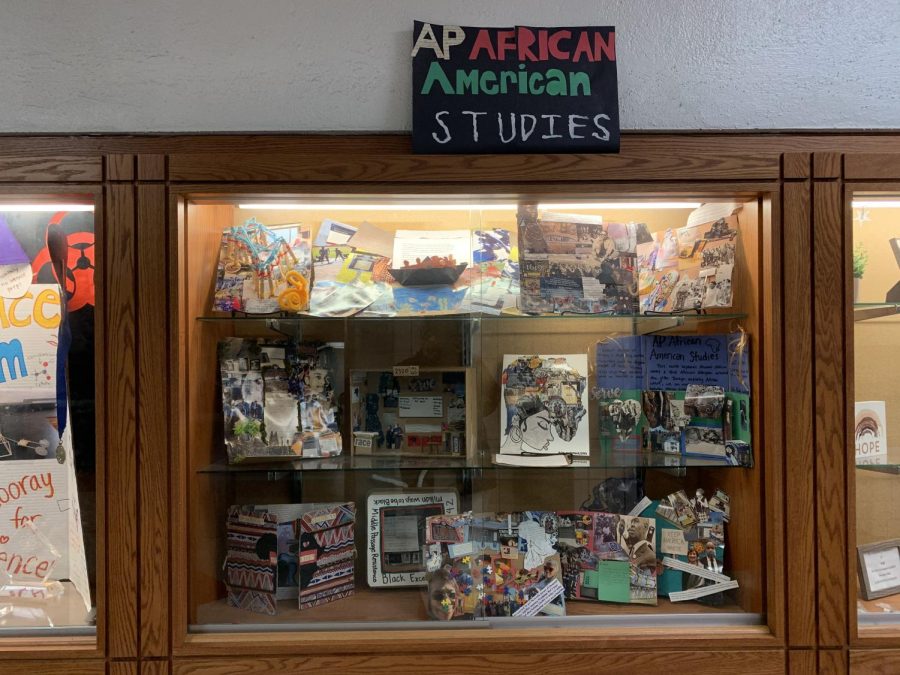AP African American Studies Is A Positive and Necessary Course
February 12, 2023
Quick! Name five notable African American figures you’ve learned about that aren’t Dr. Martin Luther King Jr. or Harriet Tubman. Can you do it?
Most United States history curriculums center around white experiences with few mentions of Black history beyond enslavement or the Civil Rights Movement. In the 1960s, the field of African American Studies gained prominence in American colleges and universities. Student activists, motivated by Anti-War Vietnam and the Black Power movements, successfully called for ethnic studies in national post-secondary institutions. Currently, over 15 US states have banned teaching critical race theory (CRT) with many more under consideration.
AP African American studies entered high school academics as a pilot course this 2022-2023 school year, in midst of intense debates over teaching Black history. College Board, the infamous organization running standardized testing and various Advanced Placement (AP) courses, chose 60 schools to pilot the course, including CRLS. History teacher and Student Government advisor Ms. Rachel Williams-Giordano is teaching AP African American Studies this year after being selected by the College Board to help create its curriculum in 2021. Ms. Giordano has worked tirelessly to guarantee AP African American Studies’ national success, especially at CRLS.
Prior to AP African American Studies, CRLS had several ethnic studies courses available, including African American History, Asian American Experiences, and Modern Latin American History. The most visible difference between AP African American Studies and other ethnic studies classes is its AP designation: not only is African American Studies now available at the college level, but it is also officially recognized by the College Board as a legitimate field of academic study.
The course has four units: Origins of the African Diaspora, Freedom, Enslavement, and Resistance, The Practice of Freedom, and Movements and Debates. This curriculum covers a long period of time with extremely diverse, underrepresented cultures and experiences. The exposure and focus on undertaught history creates a classroom environment that recognizes and appreciates silenced voices through consistently unique and impactful lessons. This month, the first two AP African American Studies classes at CRLS will celebrate the successful completion of the course. AP African American Studies student Mubarak Ware ‘23 expressed to the Register Forum, “Being in an environment that continues to grow with every lesson, every discussion, and the occasional dance choreography, has made me flourish into a better individual.” Part of the joy of AP African American Studies is the opportunity to comprehend and express your knowledge through unique mediums of learning. While the class does consist of traditional readings, videos, and occasional pop quizzes, Ms. Giordano also utilizes unique forms of assessment: creating physical representations of the course content and a whole-class TikTok dance challenge to “Cuff It” by Beyoncé.
Perhaps the most important part of the course is its impact on students. Helen Hailemariam ’23 told the Register Forum that in her experience, it’s damaging to never or rarely learn about Black history in school, much less by a Black educator. She explained that in the past school year, she was in an African American Experience elective taught by a Black female educator, which “…was pivotal to my academic career, and further revealed that African-American history is not prioritized in the CPS general education curriculum.” When reflecting on her experiences, Grace Clemente ’23 expressed that she rarely learned about Black history in school, and “…it was more often than not taught through one lens and perception of history. Throughout my time at CPSD, I have yearned to learn more about history that reflects my identity beyond the brief and surface-level units of Black history in other courses…[AP African American Studies] has genuinely changed my educational experience.” This positivity is not unique to students, as Ms. Giordano told the Register Forum that the best part about teaching the class was the joy it brought her. However, Ms. Giordano added that “CRLS students need to appreciate the unique situation they are in with [having] multiple courses that center on subjects only discussed/taught at the college level. Please thank your Deans of Curriculum for having the courage to promote a diverse curriculum that appeals to a variety of learners.”
This impact is strong, and the course is here to stay. Current students consistently encourage the expansion of the course. Hailemariam told the Register Forum, “I tend to see a trend of predominantly Black, first-generation American women in my [African American studies] class. I think it is super important that accessibility to this context is prioritized and implemented in our general education (required) classes. That way, students aren’t necessarily given the option to opt out of learning such critical narratives, experiences, identities, and more.”
To any prospective AP African American Studies students, Ms. Giordano shared her advice, “To paraphrase Professor Hasan Jeffries, we have to learn the hard history; otherwise WE will continue systems of inequality and injustice. The course will expose you to history that is hard and make you feel uncomfortable BUT be brave, be loud, and be proud.”
This article also appears in our January 2023 print edition.










